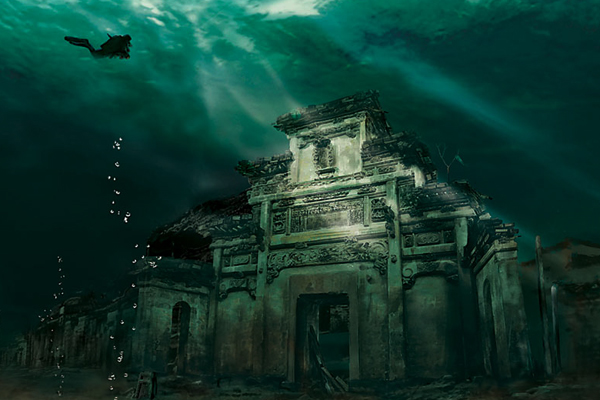Shicheng City: Where time travel is possible
|
Seen from the pictures of Shicheng City under water, the remains of the once prosperous city still appear as magnificent as they were thousands of years ago. [Photo: Chinese National Geography] |
In February this year, Chinese National Geographic magazine published a series of exquisite pictures about Shicheng City (literally, Lion City), and since then, the public's strong interest in the city has been aroused again.
The city of 1,339 years of age, situated in east China's Zhejiang Province, has been submerged under Qiandao Lake since 1959 for the construction of the Xin'an River Hydropower Station.
International archeologists vividly named the city submerged in water "time capsule." Since it is shielded from the erosion by wind, rain and sun, a city submerged in water comparatively maintains a stable condition, thus making the city a virtual time vessel. Seen from the pictures of Shicheng City, stairs in ancient houses, walls and memorial arches remain the same as they were thousands of years ago.
Shicheng City was named after the Wu Shi Mountain (literally, Five Lion Mountain) in the northern part of Sui'an County, Zhejiang. It was once the center of politics, economics and culture of Sui'an County in that area.
As written in the "History of Sui'an County," there are all together 265 arches submerged under Qiandao Lake, among which the Jie Xiao Memorial Arch's fine carvings remain well-preserved.
According to the restored map of Shicheng, there were five city gates in all directions. You can find one city gate tower on each city gate and all together there are five towers. Besides, six streets in Shicheng City were used to connect every corner of the city as a whole. The typical roads in Shicheng City were stone roads, tidily paved by flagstone and pebbles.
 0
0 








Go to Forum >>0 Comments